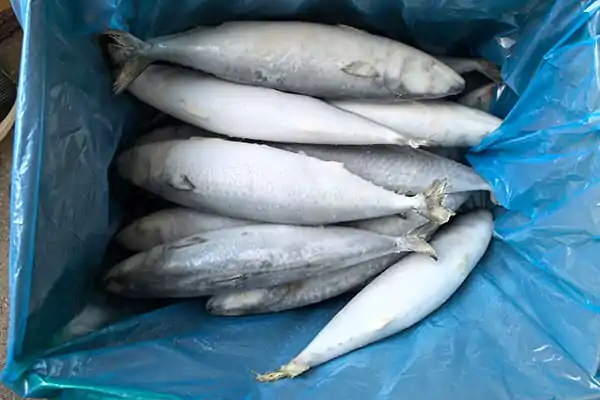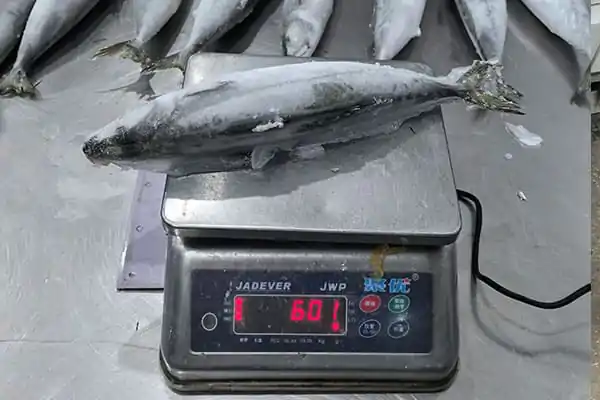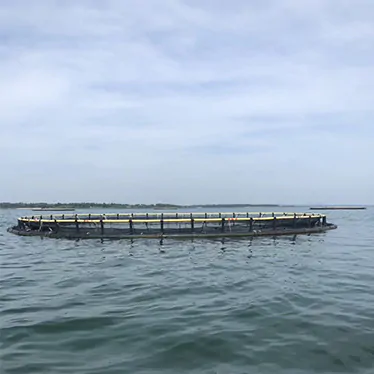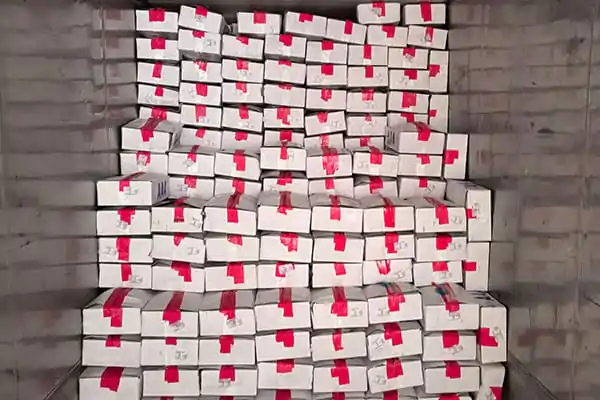Mackerel has a reputation for its bold flavor and wild origins. Yet, many wonder if farming this fast-swimming fish is possible and what it might involve.
- Mackerel can be farmed, but it’s less common than other species. Mackerel’s migratory nature and high-speed swimming require spacious environments and careful management. Certain suppliers, wholesalers, and factory operations have begun experimenting with controlled aquaculture to meet the rising demand for this popular seafood. Producers can offer a reliable, frozen supply to proveedores and businesses worldwide by maintaining quality conditions.
Let’s explore how mackerel farming works.
Why Do People Want to Farm Mackerel?
Farming mackerel opens up new opportunities for consistent supply and market stability.
- Aquaculture aims to meet high consumer demand without depending solely on wild catches. This approach helps ensure year-round availability, benefiting both local fish markets and large-scale importers who prioritize freshness and reliability.
Farming mackerel satisfies the growing appetite for this tasty fish by offering an alternative source. It gives businesses a dependable solution, especially in regions with limited wild stocks. Whether you’re a wholesaler looking for stable deliveries or a frozen fish factory aiming to diversify your product line, farmed mackerel can help fill that gap.
You can go deeper below to see how aquaculture innovators are overcoming the challenges of raising such active fish.
How Challenging Is It to Raise Mackerel in Captivity?
Finding the right conditions to raise mackerel isn’t as simple as tossing them in a pond.
- Mackerel move quickly and require plenty of oxygen, making them sensitive to overcrowded tanks. They also need a balanced diet to maintain their signature taste and healthy fat content. Ensuring water quality and simulating ocean-like conditions is essential.
Raising mackerel in captivity involves controlling oxygen levels, tank size, and diet to mimic the ocean environment. This means advanced filtration systems and specially formulated feeds that replicate the nutrients in their natural diet. It’s a challenge and an exciting frontier for suppliers and proveedores eager to expand their offerings.
Let’s dive deeper to understand the specifics of maintaining top-tier mackerel health in a farm setting.
What Are the Benefits of Farmed Mackerel for Businesses?
Businesses see many advantages in farmed mackerel, from stable pricing to year-round availability.
- Wholesalers and frozen fish factories gain control over supply, making it easier to plan shipments and maintain consistent inventory. This reduces dependence on fluctuating wild catch seasons, ensuring customers get their desired product.
Farmed mackerel benefits businesses by offering predictable supply, competitive pricing, and consistent product quality. Having a stable source also helps meet consumer demand for fresh and frozen fish, especially in markets where wild mackerel is sporadic. In short, farmed mackerel can fill gaps and open doors to new opportunities.
Let’s see how businesses adapt to these advantages and build stronger supplier partnerships.
Where Can You Find a Reliable Mackerel Farming Partner?
Locating a trustworthy partner is often the most challenging part, primarily if you’re based far from coastal regions.
- That’s where brands like yanghuafishery come in. Our mission is to supply the best quality fish for your fish business, ensuring that all our clients—from wholesalers to frozen fish factories—get high-quality products. We hold certifications like FDA, BRC, ASC, and BAP, providing extra reassurance for those seeking reliable mackerel partnerships.
Selecting a reputable farmer or supplier involves verifying certifications and inspecting farming methods. Whether you need fish in large volumes or specific sizes, a partner with proven processes and transparent practices is vital. Communication and honesty can make all the difference, especially for an importer like Doucoure.
I’d like you to please be more profound about assessing potential suppliers or proveedores and creating strong, long-term relationships in the mackerel farming industry.
Dive Deeper: Ensuring Mackerel Thrives in Aquaculture
Raising mackerel in aquaculture involves carefully balancing tank conditions, feeding routines, and fish density. Below are several factors that influence success:
Tank Setup and Environment
Mackerel require spacious enclosures with ample water flow to replicate their natural habitat. Oxygenation is critIcal. Farmers often use circular tanks or large coastal pens to allow the fish to swim continuously.
Diet and Nutrition
Mackerel typically feed on smaller fish, crustaceans, and plankton. In a farm setting, they need a well-rounded diet formulated with essential nutrients. Overfeeding or underfeeding can lead to health issues or poor growth.
Disease Prevention and Health Checks
Closely monitoring the fish helps catch potential illnesses early. Vaccinations, regular water testing, and quarantine measures keep the stock healthy, ensuring minimal antibiotic use and maximum quality.
Harvesting and Processing
When mackerel reach the desired size, harvest methods should be quick and humane to reduce stress. Many factories then freeze the fish to preserve freshness, catering to wholesalers who need stable, high-volume deliveries.
Here’s a quick snapshot of the critical components:
| Factor | Importance | Example Practice |
|---|---|---|
| Tank Size | Prevents overcrowding | Circular tanks or sea pens |
| Water Quality | Maintains fish health | Regular testing, oxygenation |
| Feeding Routine | Ensures balanced growth | Nutrient-rich pellets, varied diet |
| Harvest Method | Reduces stress, preserves taste | Quick netting, immediate chilling |
By prioritizing these elements, farmers can produce healthy, flavorful mackerel that meet the needs of distributors and final consumers.
The result? A sustainable, high-quality product that satisfies everyone from small family fish markets to large-scale frozen fish factories.
Conclusion
Yes, mackerel can be farmed, and while it demands careful management, it offers a steady, high-quality supply for those who embrace the challenge. As demand for this delicious fish grows worldwide, aquaculture opens up new possibilities for suppliers, wholesalers, and frozen fish producers aiming to meet market needs head-on.






